Having a happy spouse could mean better health.
Previous research has already shown that people who are happy tend to enjoy good health. The current study published in the journal Health Psychology finds that people with happy spouses are much more likely to report better health.
The study was based on a survey of 1,981 couples, aged 50 to 94, that assessed their happiness, self-rated health and physical activity over a six-year period.
“This finding significantly broadens assumptions about the relationship between happiness and health, suggesting a unique social link. Simply having a happy partner may enhance health as much as striving to be happy oneself,” said the lead researcher.
According to the study author, happy partners are more likely to provide strong social support and encourage their partners to adopt healthy habits such as regular exercise, healthy diet and adequate sleep. Being with a happy partner can also make a person’s life easier.
“Simply knowing that one’s partner is satisfied with his or her individual circumstances may temper a person’s need to seek self-destructive outlets, such as drinking or drugs, and may more generally offer contentment in ways that afford health benefits down the road.”

Time it right
According to current guidelines, the procedure to treat stroke must be performed within six hours to benefit patients. But a study published in the Journal of the American Medical Association has found that patients can still benefit from the procedure as long as it is performed within 7.3 hours following the onset of a stroke.
“Extending the time window for therapy will let us help more patients, including patients who were not able to get to a hospital right away because the stroke started while they were asleep or made them unable to call for help,” said the study’s lead author.
The researchers analysed the relationship between time from onset of stroke to treatment and outcome among 1,287 patients. Patients who received both the surgical treatment and standard medical therapy were less likely to be disabled three months after surgery than patients who received only medical therapy. The best outcomes were for those who received the treatment within the first two hours of a stroke, and it was not significant after 7.3 hours.
For each six-minute delay, there was a 1 per cent increase in the number of people who were disabled, highlighting the importance of seeking treatment as soon as you experience symptoms of a stroke.

No cancer link
Men who have vasectomies do not have an increased risk of prostate cancer, according to a study published in the Journal of Clinical Oncology.
A 2014 study had suggested a possible link between vasectomy, a long-term birth control method that involves a surgical procedure to snip or block the tubes that carry sperm from the testicles, and prostate cancer.
The current study analysed data from 3,63,726 men 40 years and older, 42,015 of whom had undergone vasectomy. During 30 years of follow-up, 7,451 men died of prostate cancer.
The analysis did not find an increased risk of prostate cancer or death from prostate cancer among men who had vasectomy.
The findings “should provide some reassurance to men considering vasectomy,” the study author noted.
Maintaining a healthy weight and quitting smoking can help men lower their risk of prostate cancer. “Both obesity and smoking have consistently been linked with higher risk of fatal prostate cancer as well as with risk of many other diseases.”
Did You Know
People who take a particular class of painkillers known as non-steroidal anti-inflammatory drugs (NSAIDs) have a 19 per cent increased risk of hospital admission for heart failure. Seven traditional NSAIDs—diclofenac, ibuprofen, indomethacin, ketorolac, naproxen, nimesulide, and piroxicam—and two COX-2 inhibitors—etoricoxib and rofecoxib—particularly increase the risk of heart failure.
The BMJ
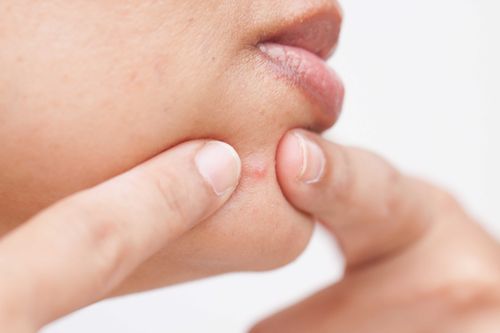
Anti-ageing acne
Those pesky spots can be the bane of teen years. But they could be a boon in midlife.
According to a study published in the Journal of Investigative Dermatology, teens who suffer from acne are more likely to have younger-looking skin longer, as they age slower. British researchers measured the length of white blood cell telomeres in 1,205 twins. About a quarter of the participants had previously suffered from acne.
Telomeres are caps at the end of chromosomes which protect the cells from deteriorating. Telomeres gradually become shorter as we age, eventually leading to cell death. People who have long telomeres tend to age more slowly than those with short ones.
The telomere length in people with a history of acne was significantly longer, suggesting they were more protected against ageing. Analysis of skin samples also showed that a gene pathway involved in cell death was less active in acne sufferers.
Previous studies have noted that acne sufferers tend to age more slowly, with wrinkles and skin thinning appearing much later.
"Our findings suggest the cause could be linked to the length of telomeres which appears to be different in acne sufferers and means their cells may be protected against ageing," explained the lead researcher.

Morning sickness a blessing?
Nausea and vomiting during pregnancy could be a blessing in disguise.
According to a study published in the JAMA Internal Medicine, morning sickness could be a sign of healthy pregnancy. It is associated with a lower risk of miscarriage in pregnant women.
The study focused on 797 women who had positive pregnancy tests. All the women had experienced one or two prior miscarriages.
The women kept daily reports of nausea and vomiting symptoms. By the eighth week, 57.3 per cent of the women reported experiencing nausea and 26.6 per cent reported nausea with vomiting.
Of the pregnancies, 188 ended in miscarriage. Women who experienced morning sickness were 50 to 75 per cent less likely to experience a pregnancy loss compared to those who did not experience nausea and/ or vomiting.
“Our study evaluates symptoms from the earliest weeks of pregnancy, immediately after conception, and confirms that there is a protective association between nausea and vomiting and a lower risk of pregnancy loss,” the study author added.
Pills and blues
Women, especially teens, who use hormonal contraception, such as birth control pills, may have a higher risk of developing depression.
For the Danish study in JAMA Psychiatry, researchers used data from more than 1 million women, aged 15 to 34 and followed them for an average of 6.4 years; 55 per cent used hormonal contraception.
During the study period, 1,33,178 of them were prescribed antidepressants for the first time and 23,077 had a first-time diagnosis of depression.
Compared with non-users, women who used combined oral contraceptives were 23 per cent more likely to be prescribed antidepressants for the first time. The risk was 34 per cent higher for women taking progestin-only pills. Adolescent girls had a much higher risk: 80 per cent higher risk of first use of an antidepressant if using combined oral contraceptives and 2.2-times higher risk with progestin-only pills. Teens who used hormonal patches or vaginal rings had a three times greater risk of first use of an antidepressant.
The risks for first diagnoses of depression were similar or lower and varied depending on the type of hormonal contraception. “Use of hormonal contraception, especially among adolescents, was associated with subsequent use of antidepressants and a first diagnosis of depression, suggesting depression as a potential adverse effect of hormonal contraceptive use,” the study concluded.
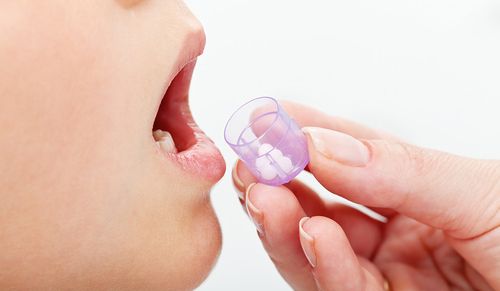
Teething troubles
The US Food and Drug Administration has issued a warning against using homoeopathic teething tablets and gels as they can pose a health risk to infants and children. The FDA is currently analysing reports of adverse events, including seizures in infants and children who were given homoeopathic teething tablets and gels.
These products have not been evaluated or approved by the FDA for safety or efficacy. The agency does not think these products have any proven health benefits.
The agency is urging parents to seek immediate medical care if their child experiences seizures, difficulty breathing, lethargy, excessive sleepiness, muscle weakness, skin flushing, constipation, difficulty urinating, or agitation after using homoeopathic teething tablets or gels.
“Teething can be managed without prescription or over-the-counter remedies," said the director of the FDA’s Center for Drug Evaluation and Research. “We recommend parents and caregivers not give homoeopathic teething tablets and gels to children and seek advice from their health care professional for safe alternatives."
Did You Know
People suffering from headache disorders such as cluster or tension headaches have a 21 per cent higher risk of developing hypothyroidism; the risk was 41 per cent higher for those suffering from migraine headaches.
Headache: The Journal of Head and Face Pain
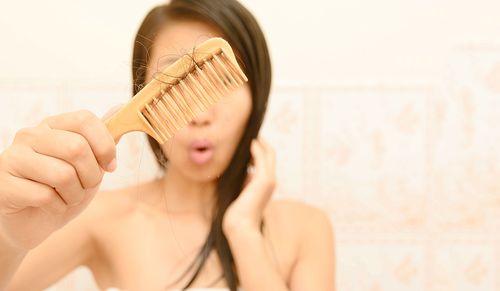
Added benefits
There is hope for people who suffer from alopecia areata, an autoimmune disease that causes patchy or complete hair-loss.
According to a study published in the Journal of Clinical Investigation/Insight, tofacitinib citrate, a drug used for rheumatoid arthritis, can help people who suffer from alopecia areata regrow hair.
Alopecia areata is the second most common form of hair loss and can affect both men and women at any age. While it usually causes hair loss on the scalp, patients can also lose facial and body hair including eyebrows and eyelashes. Currently, there aren’t any reliably effective treatments.
For the study, 66 adults with alopecia areata were given tofacitinib citrate 5mg, twice daily. More than 50 per cent saw hair regrowth in three months. One-third recovered more than half of their lost hair. Side effects were mild.
In another study, nine out of 12 patients treated with another JAK inhibitor, ruxolitinib, a medication used to treat bone marrow malignancies, had hair regrowth of 50 per cent or greater. Seventy-seven per cent of those who responded to ruxolitinib therapy achieved more than 95 per cent hair regrowth. Average hair regrowth was 92 per cent at the end of treatment.
Both ruxolitinib and tofacitinib citrate inhibit the JAK family of enzymes, known as JAK inhibitors and reawaken dormant follicles by blocking inflammatory signalling pathways responsible for attacking the hair follicle in alopecia areata.

Ride out the stone
Want to get rid of kidney stones without going through a surgery? According to a study published in the Journal of the American Osteopathic Association, riding a roller coaster can help patients pass kidney stones naturally.
The urologist who led the study was drawn to the idea after several patients told him they had passed kidney stones after a particular ride—the Big Thunder Mountain Railroad roller coaster at Walt Disney World.
To test the theory, the researchers made a synthetic 3D model of a hollow kidney and filled it with urine, and three kidney stones no larger than 4mm were placed inside. They rode the roller coaster 20 times holding the artificial kidney in a backpack.
Sitting in the last car of the roller coaster had a 64 per cent passage rate, whereas sitting in the first few cars only had a 16 per cent success rate.
"Passing a kidney stone before it reaches an obstructive size can prevent surgeries and emergency room visits. A ride on a moderate-intensity roller coaster could benefit some patients with small kidney stones," the lead researcher noted.
Three for joy
Thanks to a novel fertility technique, a baby has been born with DNA from three parents.
The baby, who is five months old now, was born to a Jordanian couple. The mother’s mitochondria carries genes for Leigh syndrome, a fatal nervous system disorder. She already had four miscarriages and had two children who later died of the condition. Mitochondrial DNA is passed down to children only from mothers.
The procedure was performed by Dr John Zhang of New Hope Fertility Center, New York City. Since this type of fertility treatment is not approved in the US, it was performed in Mexico.
Zhang used a technique called spindle nuclear transfer. He took the nucleus from one of the mother's eggs and inserted it into a donor egg that had had its own nucleus removed. The resulting egg that contained DNA from the mother and mitochondrial DNA from the donor was then fertilised using the father's sperm.
Though five embryos were created, only one developed normally. This embryo was implanted in the mother, who gave birth to a healthy baby boy nine months later.
As first reported by New Scientist, the technique is designed to help couples who carry rare genetic mutations have healthy children. Currently the technique is approved only in the UK.
Did You Know
The zika virus can be transmitted through body fluids like tears or sweat.
New England Journal of Medicine
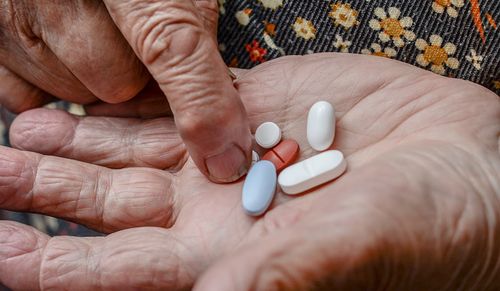
Stay safe
As we age, we are more likely to take a variety of medications for different ailments, which can increase the risk of potentially harmful drug interactions, according to the US Food and Drug Administration.
Physical changes that come with age can also affect the way our body handles these medicines. For example, our liver and kidneys may not work as well, which affects how a drug breaks down and leaves our body.
To reduce the risk of harmful drug interactions or side effects, the FDA is recommending four safety tips:
Take medication as prescribed
You should take only medicines that your doctor has prescribed for you. Don’t skip doses or stop taking medication, even if you have side effects, without first talking to your doctor. “Medications that treat chronic conditions such as high blood pressure and diabetes typically only work when taken regularly and as directed. You have to take them continuously to maintain control over your condition.”
Keep a medication list
Keep an up-to-date list with the names of all your medications, the dosage and the reason for taking them with you always. Give a copy to a family member or friend so it can be used in the event of an emergency.
Watch out for drug interactions and side effects
Harmful interactions can occur when you take different drugs. Herbal supplements and alcohol can affect the action of a drug. If you have different doctors for different heath conditions, make sure you tell each one about all medications and supplements that you take.
The news release has the example of nitroglycerin prescribed to treat angina (chest pain related to heart disease) which should not be taken with erectile dysfunction drugs like Viagra and Cialis.
Review your medications
It is important to review all the medications and dietary supplements that you take with your doctor at least once a year. Tell your doctor if you think a medicine is not working and ask for cheaper, but effective alternatives.
“As a society, we have become reliant on pharmaceuticals to help us attain a longer and higher-quality life. The goal should be for each of us to access that benefit but respect that medicines are serious business. To get the most out of them, you should take them with great care and according to directions,” said Dr Sandra Kweder, an FDA medical officer.
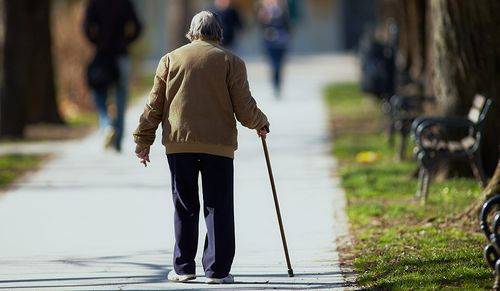
Active in old age
Being physically active can help older adults stay mobile, avoid disability, recover more quickly after an injury and maintain their independence over time, according to a study published in the Annals of Internal Medicine.
The study assigned 1,635 sedentary adults between the ages of 70 and 89 to either a walking regimen combined with strength, flexibility and balance training and a health education programme.
Over three and a half years, the exercise programme reduced the total time that older adults suffered from major disability—defined as the inability to walk a quarter mile—by 25 per cent.
Compared to participants in the health education programme, those in the exercise group were less likely to experience disability in the first place, more likely to recover if they did suffer a disability, and less likely to have a subsequent episode.
“Our report strengthens the evidence supporting the benefit and long-term value of physical activity in promoting independent mobility among a growing population of vulnerable older persons,” said the lead author.
Contributor: SHYLA JOVITHA ABRAHAM






